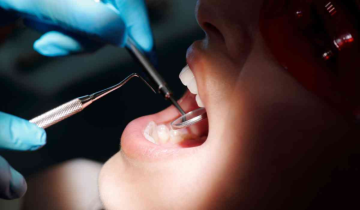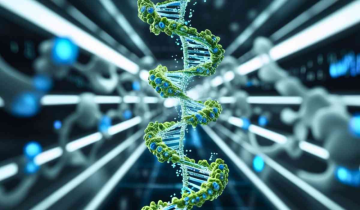The intersection of biotechnology and health technology is driving unprecedented advancements in healthcare, with 2025 poised to be a landmark year. From CRISPR-based therapies to AI-driven diagnostics, these innovations are revolutionizing patient care, drug development, and disease prevention. Here’s a breakdown of the key trends transforming the industry.
1. CRISPR and Gene Editing: Precision Medicine’s Cutting Edge

CRISPR-Cas9 technology continues to dominate genetic medicine, with therapies like Casgevy (approved for sickle cell disease and beta-thalassemia) paving the way for treatments targeting cancer, viral infections, and autoimmune disorders. Researchers are refining CAR-T cell therapies with safety switches and combination approaches to tackle solid tumors, expanding their use beyond blood cancers. The global cell therapy market, valued at $5.89 billion in 2024, is projected to grow exponentially as manufacturing processes become more automated and scalable.
2. AI and Machine Learning: Accelerating Drug Discovery and Diagnostics

Artificial intelligence is streamlining drug development, reducing costs, and enhancing precision. AI tools analyze medical images, predict disease progression, and optimize clinical trial designs, enabling faster approvals for therapies. Machine learning algorithms also power personalized treatment plans by correlating genetic data with patient outcomes, ensuring tailored interventions for conditions like cancer and cardiovascular diseases.
3. mRNA Therapeutics: Beyond Vaccines

The success of mRNA-based COVID-19 vaccines has spurred applications in metabolic disorders, cancer, and cardiovascular diseases. mRNA’s rapid production and versatility make it ideal for targeting genetic mutations and delivering therapeutic proteins. This technology is set to reduce development timelines for novel treatments, particularly in rare diseases.
4. Wearable Tech and Remote Monitoring

Advanced wearables now track blood oxygen, heart rhythms, and early illness signs, transmitting real-time data to healthcare providers. This continuous monitoring improves chronic disease management (e.g., diabetes, hypertension) and enables proactive interventions, reducing hospitalizations. Integration with telemedicine platforms creates a seamless digital healthcare ecosystem, enhancing accessibility.
5. Regenerative Medicine and Bioprinting

Tissue engineering and 3D bioprinting are advancing regenerative therapies for organ repair and replacement. Innovations in stem cell research and scaffold materials are enabling the growth of functional tissues, offering hope for conditions like spinal cord injuries and organ failure. The global regenerative medicine market is projected to expand significantly as these technologies mature.
6. Blockchain for Secure Health Data

Blockchain ensures tamper-proof digital health records, enhancing data security and interoperability across healthcare systems. Patients gain control over their medical history, while providers access accurate, up-to-date information for informed decision-making.
7. Quantum Computing in Biotechnology

Quantum technology is accelerating computational biology, enabling complex simulations of molecular interactions and drug efficacy. This reduces R&D timelines and costs, particularly in protein folding analysis and genomics.
The Road Ahead
By 2025, the global biotech market is projected to exceed $546 billion, driven by these innovations. As AI, genomics, and regenerative therapies converge, they promise a future of personalized, efficient, and accessible healthcare. Stakeholders must prioritize collaboration, regulatory adaptation, and ethical AI deployment to fully realize this potential.
For professionals, gaining expertise in medical physiology, AI-driven diagnostics, or genetic engineering will be critical to thriving in this evolving landscape.
Embrace the biotech revolution-stay informed, adapt to emerging technologies, and leverage these advancements to transform patient outcomes globally.
With inputs from agencies
Image Source: Multiple agencies
© Copyright 2025. All Rights Reserved Powered by Vygr Media.









